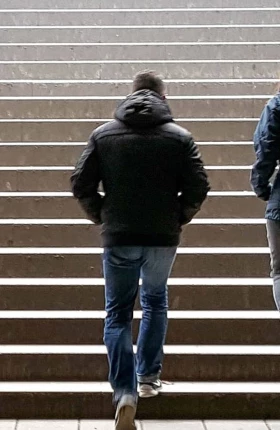BCG’s Jim Hemerling, a managing director and senior partner, talked to us about the role of organization leaders during times of uncertainty and crisis.
BCG: Does the role of leaders need to change during a time of global crisis and uncertainty, demanding new kinds of responses?
Jim Hemerling: So, one of the ways we characterize leadership is as a combination of the head, heart, and hands. Briefly, the head is the aspect of leadership that focuses on envisioning and planning for the future, the heart is about inspiring and empowering people, and the hands relates to execution and innovation.
What we have seen in times of crisis and uncertainty—when people are living amid constant change and, more broadly, massive societal upheaval—is that employees look for leadership from the heart. They seek a sense of purpose, recognition, coaching and development, empathetic listening, and deep caring for their physical, mental, and emotional well-being.
I want to emphasize the importance of purpose in a crisis. In such situations, people need not only a clear sense of purpose but also confidence in their leaders—that leaders have the personal conviction to authentically follow that purpose as their North Star, guiding themselves and their organizations. In a crisis, clarity regarding purpose is particularly critical because in heated moments, when decisions are often being made at a fast pace and with limited information, it is essential that leaders have a North Star to guide their actions. Purpose can also help to provide much-needed inspiration at a time when people can feel overwhelmed and even burned out by the pace of change and disruption to their lives.
So, in times of crisis, more than ever, leaders need the courage of their convictions.
I also want to emphasize the importance of leading from the heart during crisis and disruption. For leaders, the concept of caring deeply for their people—in their personal lives and in terms of their humanity—is amped up in times like that. During the pandemic, we saw that leaders were, somewhat instinctually, placing a priority on the aspects of leadership that relate to the heart. And the war in Ukraine is clearly an extreme humanitarian crisis that called on the same kind of “heart” response.
The big question after a period of crisis or uncertainty is whether leaders will maintain that approach or just say, We’re done with that; we can go back to the way we used to lead.
Does the growing emphasis on the “heart” signal a different concept of business leadership?
Our research shows that leaders rise to the challenges and embrace an approach we call generative leadership, which is well suited to uncertain times, when leaders face high-stakes demands from many stakeholders.
Everything generative leaders do is guided by their deep desire to positively impact not just their organization but also society, to strive to leave the world a better place than they found it. It’s a moral compass that directs every decision.
When people hear the term generative leadership, they initially think it’s all about protecting the planet. But it’s also about shareholders, customers, employees, and society more broadly.
Everything generative leaders do is guided by their deep desire to positively impact not just their organization but also society, to strive to leave the world a better place than they found it. — Jim Hemerling
Do leaders need to interact differently with different stakeholders during a time of crisis?
The two big differences relate to internal alignment and external alignment. Leaders have to put themselves in the shoes of multiple stakeholders—to actively seek to understand their needs, desires, and aspirations. Empathy is king.
It might seem odd, but if you’re a CEO, you think that you’re actually directing the company. But in reality, on any given day, your employees are voting whether to stay as employees or not—a là the Great Resignation. Customers are deciding if they still want to be your customers. The communities you operate in are deciding whether they’ll give you a license to operate or not. The reality is that those different stakeholders have a lot of power.
In a multistakeholder world, leaders need to pay attention to that. Failing to do so could cost them.
Leadership by Design: Navigate the complexities of modern leadership
A leader needs accurate and timely pulse checks—information about where there’s support and where there’s resistance—to really understand where they stand with those different stakeholders, and then they’ve got to address concerns. Leaders need to conduct ongoing communication campaigns, but it’s ideally in the form of dialogues: they are actually constantly dialoguing with representatives from different stakeholder groups to make sure that they are understanding where you are coming from, where you’re going, and how you’re responding to their needs.
I’d like to see leaders fully embrace the mission to leave the world a better place than they found it. If leaders everywhere would truly embrace that ethos, I think it would go a long way to moving us toward a better and brighter future.







